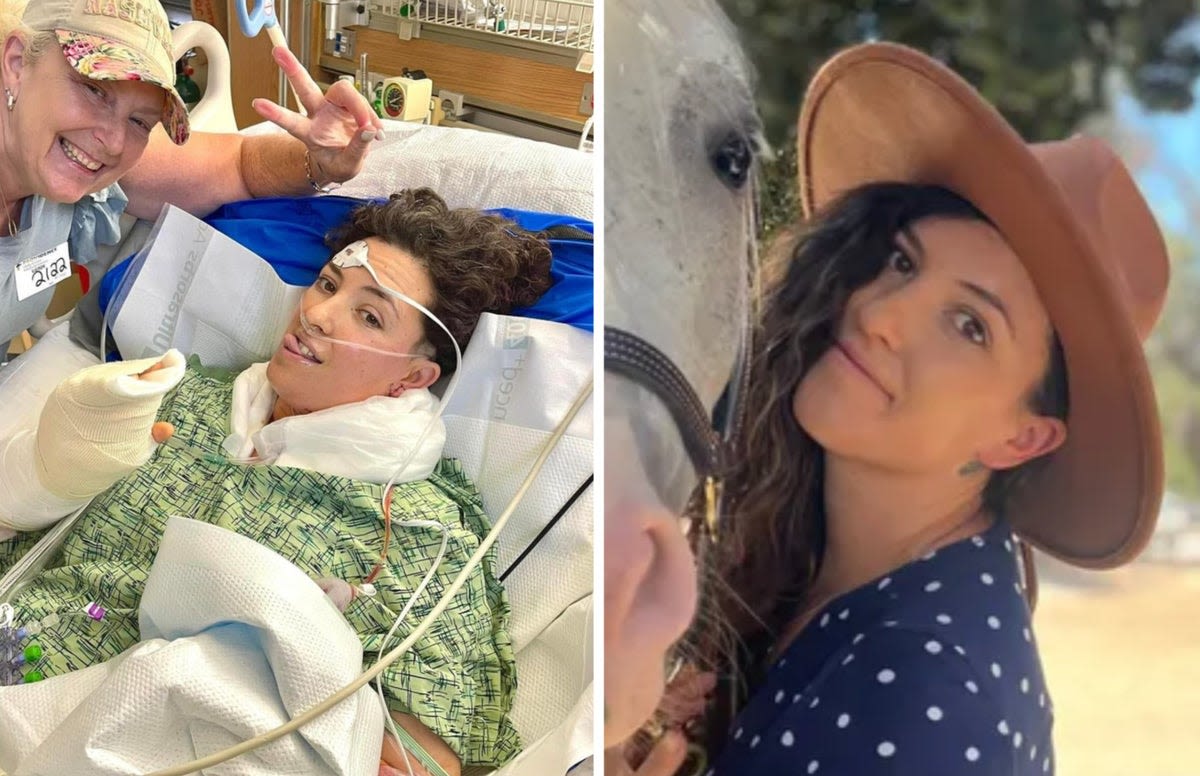Search results
- For the purposes of clinical care, research, and guideline development, in-hospital cardiac arrest (as opposed to death without resuscitation) is most commonly defined as the loss of circulation prompting resuscitation with chest compressions, defibrillation, or both.
www.ncbi.nlm.nih.gov › pmc › articles
People also ask
What is a cardiac arrest?
What causes in-hospital cardiac arrest?
What is in-hospital cardiac arrest?
Is in-hospital cardiac arrest a high-risk cardiovascular condition?
Nov 9, 2023 · Cardiac arrest is the abrupt loss of heart function in a person who may or may not have been diagnosed with heart disease. It can come on suddenly or in the wake of other symptoms. Cardiac arrest is often fatal if appropriate steps aren’t taken immediately. More than 436,000 cardiac arrest deaths occur each year in the U.S.
- Causes of Cardiac Arrest
The first six months after a heart attack is a high-risk...
- Heart Attack and Sudden Cardiac Arrest Differences
Sudden cardiac arrest is a leading cause of death — about...
- Ventricular Fibrillation
Disordered electrical activity causes the heart’s lower...
- Emergency Treatment of Cardiac Arrest
If you’re alone with an adult who has signs of cardiac...
- Causes of Cardiac Arrest
News about Monroeville, Dairy Queen, assault
News about Novato, Sinaloa Middle School, students
News about Bethel, Johnny Wactor, Ohio
Also in the news
Mar 3, 2019 · The cause of the cardiac arrest is most often cardiac (50%-60%), followed by respiratory insufficiency (15%-40%). Efforts to prevent in-hospital cardiac arrest require both a system for identifying deteriorating patients and an appropriate interventional response (eg, rapid response teams).
- Lars W. Andersen, Lars W. Andersen, Mathias J. Holmberg, Mathias J. Holmberg, Katherine M. Berg, Mic...
- 10.1001/jama.2019.1696
- 2019
- 2019/03/03
- What Causes Cardiac Arrest?
- Am I at Risk For Cardiac Arrest?
- What’s The Difference Between Cardiac Arrest and A Heart Attack?
- How Is A Cardiac Arrest Treated?
- What Is The Recovery Process After Cardiac Arrest?
- How Can I Prevent Cardiac Arrest?
Cardiac arrest can be caused by a heart condition, or it can occur unexpectedly. However, there are three main causes of cardiac arrest: 1. Arrhythmia and ventricular fibrillation: Arrhythmia occurs when electrical signals in the heart are the problem leading to an abnormal heartbeat. Ventricular fibrillation is a type of arrhythmia and is the most...
Several lifestyle and hereditary factors may increase the risk of cardiac arrest. They include the following: 1. Alcohol or drug abuse 2. Family history of heart disease or cardiac arrest 3. Heart disease 4. High blood pressure 5. High cholesterol 6. Low potassium or magnesium (nutritional deficiency) 7. Obesity 8. Smoking Some people may experienc...
The terms ‘heart attack’ and ‘cardiac arrest’ are often used interchangeably, but these are two different heart conditions. A heart attackoccurs when there is a blockage in the arteries that stops blood flow in the heart. Due to the lack of blood and oxygen flowing in the heart, the heart muscle tissue will become damaged.Heart attacks can increase...
If someone experiences cardiac arrest, they need immediate treatment to increase the flow of oxygen-rich blood to their organs.
Cardiac arrest can lead to death if there is no treatment within minutes. This condition is one of the largest causes of natural death in the United States. After being released from the hospital, a doctor will provide guidelines for lifestyle changes, if needed, to reduce the risk of cardiac arrest or further complications. Routine appointments ma...
You can reduce lifestyle factors that may increase your risk of cardiac arrest and other acquired heart diseases by: 1. Eating heart-healthy meals 2. Losing weight 3. Exercising 4. Quitting smoking and drug use 5. Reducing alcohol intake Learn more about how you can prevent heart disease.
Apr 7, 2023 · Last Update: April 7, 2023. Go to: Objectives: Identify the etiology of cardiac arrest. Review the epidemiology of cardiac arrest. Summarize the use of basic life support and advanced life support in the management of cardiac arrest.
- Kevin Patel, John E. Hipskind
- 2023/04/07
Jan 19, 2023 · Sudden cardiac arrest happens suddenly and requires emergency medical care at a hospital. If the heart is quickly restored, survival is possible. When you are stable, health care providers at the hospital run tests to determine the cause. Tests are done to help determine how well the heart pumps blood and to look for diseases that affect the heart.
Feb 9, 2023 · Although a heart attack can lead to cardiac arrest, cardiac arrest is an electrical issue, where the heart stops beating properly. "When you have a heart attack, you're awake, and your heart is beating, and you don't need CPR," Newman said. "You just need to call 911 and get help. But with sudden cardiac arrest, their heart has stopped.
Dec 6, 2022 · Background. In-hospital cardiac arrest (IHCA) is defined in the Utstein resuscitation registry reporting template as the delivery of chest compressions and/or defibrillation to patients admitted to inpatient beds [ 1 ]. In-hospital cardiac arrest is associated with a high risk of death but mortality rates are decreasing [ 2, 3 ].


